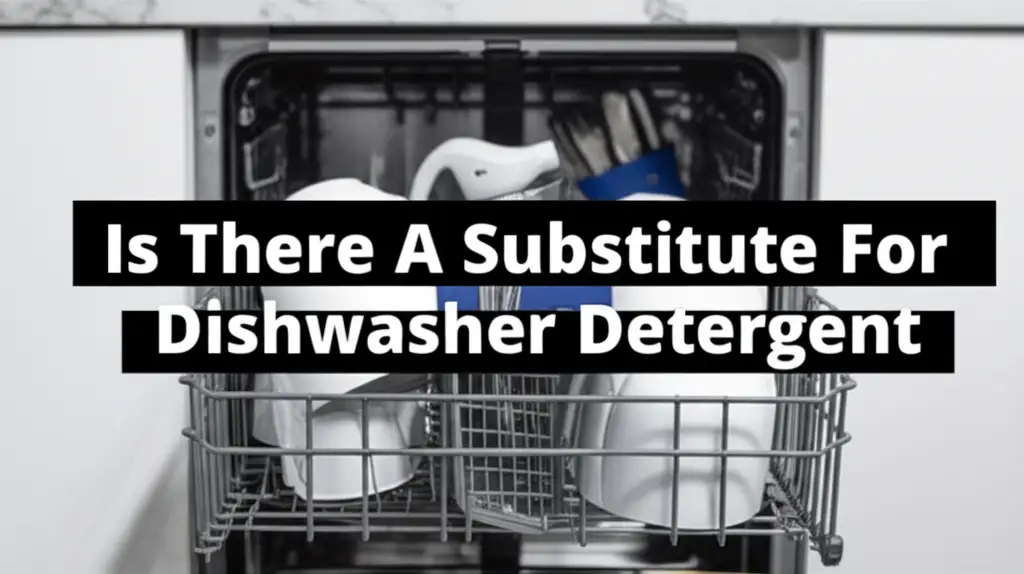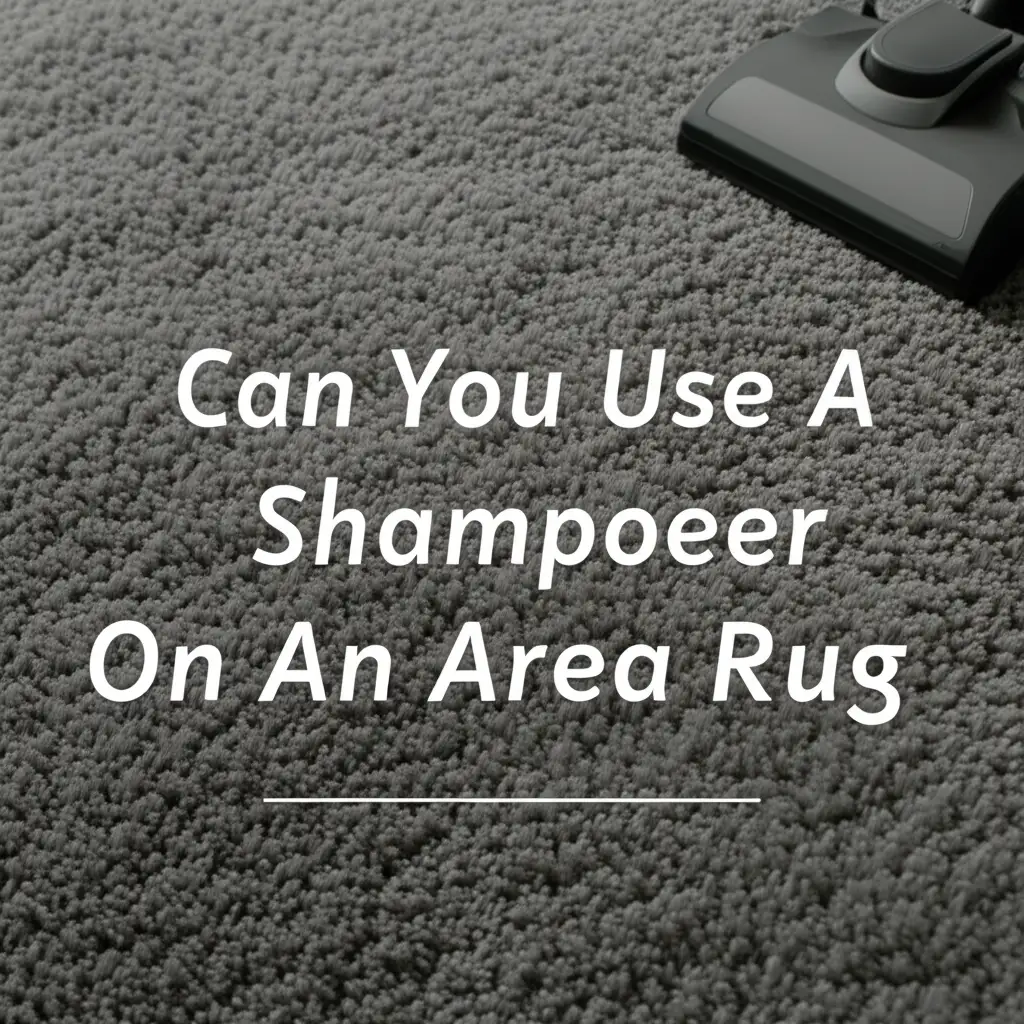· Mason Everett · Home Care · 13 min read
Is There A Substitute For Dishwasher Detergent

Safe & Effective Substitutes For Dishwasher Detergent
Have you ever loaded your dishwasher, only to realize the detergent dispenser sits empty? It happens to many of us. Running out of dishwasher detergent can feel like a major setback, especially with a sink full of dirty dishes. You might wonder if there’s a quick fix or a substitute for dishwasher detergent you can safely use.
I understand this common household dilemma. Nobody wants to wash dishes by hand if they own a dishwasher. This article helps you find the right answers. We will explore safe emergency options and discuss DIY solutions. We also clearly explain what cleaning products you must never put into your dishwasher. My goal is to equip you with the knowledge to keep your dishes clean, even in a pinch, and protect your appliance.
Takeaway
- Vinegar and Baking Soda are short-term emergency options. Use them sparingly for light loads.
- Never use liquid dish soap or laundry detergent. They create excessive suds and can damage your machine.
- Homemade detergent recipes exist. They require specific ingredients for proper cleaning.
- Commercial dishwasher detergent remains the best choice. It ensures optimal cleaning and machine longevity.
- Proper dishwasher maintenance is key. This helps your appliance work well with any cleaning agent.
Is There a Substitute for Dishwasher Detergent?
Yes, there are temporary substitutes for dishwasher detergent, but their effectiveness and safety vary greatly. For light loads or emergencies, white vinegar and baking soda can offer some cleaning power. However, these are not ideal long-term solutions. They lack the specific enzymes and cleaning agents found in commercial dishwasher detergents. Using improper substitutes can lead to poor cleaning, machine damage, or excessive suds.
The Essential Role of Dishwasher Detergent
Understanding how regular dishwasher detergent works helps explain why substitutes are tricky. Dishwasher detergent is a special cleaning agent. It contains powerful ingredients designed for machine washing. Unlike hand dish soap, it produces very few suds. This low-suds formula is crucial for your dishwasher’s operation.
Commercial detergents use specific chemicals. Enzymes break down food particles like starches and proteins. Bleaching agents help remove tough stains, such as coffee or tea. Surfactants lift grease and dirt from dishes. They also contain water softeners to prevent mineral deposits. These combined ingredients ensure your dishes come out sparkling clean. The detergent formulation also protects your dishwasher from corrosion.
Emergency Substitutes for Spot Cleaning
Sometimes, you need a quick fix when you run out of regular detergent. For very light loads, a few common household items can serve as emergency substitutes. Remember, these options are not as effective as commercial detergent. They are best for a single, immediate use rather than regular cleaning. They help prevent food from drying onto dishes.
White Vinegar
White vinegar is a popular choice for emergency dishwashing. It works as a natural degreaser and deodorizer. Vinegar helps cut through grease and hard water spots. It leaves dishes looking shiny, especially glassware. Pour about half a cup of white vinegar into the bottom of the dishwasher or in the rinse aid dispenser. Do not mix it with other cleaning agents. Using vinegar regularly as a where to put vinegar in dishwasher to clean can also help maintain your machine.
Baking Soda
Baking soda offers mild abrasive power. It helps scrub away stuck-on food. It also acts as an odor neutralizer. You can sprinkle two tablespoons of baking soda onto the bottom of the dishwasher. This works best for lightly soiled dishes. It can also help if your dishwasher has a slight odor problem. Baking soda is a gentle alternative.
Lemon Juice
Lemon juice provides a fresh scent. It also has mild acidic properties. These properties can help cut through some grease. Add a few tablespoons of fresh lemon juice to the detergent dispenser. You can also place a lemon wedge on the top rack. This can help refresh your dishwasher’s smell during a cycle. Lemon juice is not a strong cleaner, but it offers a pleasant aroma.
Formulating Your Own Dishwasher Detergent
If you are looking for a more consistent substitute, homemade dishwasher detergent recipes exist. These DIY formulas aim to mimic the properties of commercial detergents. They typically combine several common household ingredients. Making your own detergent can be cost-effective. It also gives you control over the ingredients. However, homemade versions might not perform as well as store-bought ones. They also might not be suitable for all dishwasher models.
Common DIY Dishwasher Detergent Recipe
A basic homemade dishwasher detergent often includes a mix of these ingredients:
- Borax: This mineral salt acts as a cleaning booster. It helps soften water and aids in stain removal. Borax contributes to overall cleaning power.
- Washing Soda (Sodium Carbonate): This is a strong alkaline cleaner. It helps cut through grease and grime. Washing soda is very effective at dissolving tough food residues.
- Citric Acid: This helps prevent water spots. It also acts as a natural rinse aid. Citric acid is especially useful if you have hard water.
- Kosher Salt (or regular salt): Salt can help reduce hard water issues. It aids in preventing mineral buildup on dishes and inside the machine.
Recipe Example:
- Combine 1 cup of washing soda, 1 cup of borax, and ½ cup of citric acid.
- Mix well until all ingredients are evenly distributed.
- Store the mixture in an airtight container.
- Use 1-2 tablespoons per load.
Always test a small amount first. Monitor your dishes and dishwasher for any adverse reactions. Some dishwashers may not react well to DIY solutions.
Crucial Don’ts: What Never to Put in Your Dishwasher
Using the wrong substitute for dishwasher detergent can cause serious problems. It can damage your dishwasher and your dishes. Some common household cleaners are extremely harmful when used in a dishwasher. Knowing what to avoid is just as important as knowing what to use. Misusing products can lead to costly repairs or even a ruined appliance.
Liquid Dish Soap
This is the most common mistake people make. Never put liquid hand dish soap in your dishwasher. It creates an incredible amount of suds. These suds will overflow from your dishwasher. They can flood your kitchen floor. The excessive suds can also damage your dishwasher’s pump and motor. It is a messy and potentially expensive error. If you find yourself in this predicament, read our guide on what to do if you put dawn in dishwasher. This type of soap is designed for manual scrubbing, not for the high-pressure spray of a machine.
Laundry Detergent
Laundry detergent is designed for fabrics, not dishes. It also produces too many suds for a dishwasher. Like liquid dish soap, it can cause overflows and damage. Laundry detergent contains specific chemicals for clothing. These chemicals are not safe for food contact surfaces. They can leave residues on your dishes. These residues can be harmful if ingested.
Bleach
Bleach is a powerful disinfectant. However, it is very corrosive to stainless steel and other metals. Most dishwashers contain metal components. Using bleach can cause pitting, rust, and permanent damage to your appliance. It can also degrade rubber seals and plastic parts over time. Never combine bleach with other cleaners like vinegar. This can create toxic fumes. Bleach has no place in your dishwasher’s cleaning cycle.
Hand Soap (Bar or Liquid)
Any type of hand soap, whether bar or liquid, contains sudsing agents. These are designed to create lather for manual washing. Using them in a dishwasher will result in the same suds overflow problem as liquid dish soap. They are not formulated for the high-temperature, low-suds environment of a dishwasher. Stick to products specifically made for dishwashers.
Enhancing Dishwasher Performance with Natural Aids
Even when using commercial detergent, some natural aids can boost your dishwasher’s performance. These additives are often used in conjunction with regular detergent. They help address specific issues like hard water or lingering odors. Incorporating these can lead to cleaner dishes and a fresher machine. They also help prevent common dishwasher problems.
Vinegar as a Rinse Aid
White vinegar is an excellent natural rinse aid. It prevents water spots and streaks on dishes and glassware. It also helps with hard water minerals. Instead of commercial rinse aid, fill your dishwasher’s rinse aid dispenser with white vinegar. The vinegar releases during the rinse cycle. This ensures dishes come out spotless and shiny. It is a cost-effective and eco-friendly option.
Pre-Rinsing Dishes
While modern dishwashers are efficient, pre-rinsing can sometimes be beneficial. It is not necessary for every dish. Scrape off large food particles before loading. This prevents them from clogging the filter or spray arms. Excessive pre-rinsing wastes water. But removing significant debris helps your detergent work better. It also keeps your dishwasher cleaner between cycles.
Regular Machine Maintenance
Maintaining your dishwasher regularly improves its cleaning ability. Clean the filter often. Food particles and grease can build up in the filter. A clogged filter reduces cleaning efficiency. Your dishes might come out dirty. Use a dishwasher cleaner periodically. This removes mineral buildup and grease from internal components. A clean machine performs better. Our guide on how often should you clean your dishwasher filter offers detailed steps.
Troubleshooting Common Issues with Non-Standard Cleaners
Using substitute dishwasher detergents can sometimes lead to new problems. You might notice issues with your dishes or your machine. These problems can range from cosmetic flaws to operational glitches. Understanding these issues helps you react properly. It also guides you on when to switch back to commercial detergent.
Residue and Cloudy Dishes
Some homemade or emergency substitutes may leave residues. Dishes might appear cloudy or have a gritty feel. This often happens if the substitute does not dissolve completely. It can also result from an imbalance in ingredients. Hard water can worsen this issue. Try increasing the amount of rinse aid (like vinegar) or adjusting the substitute amount. A full cleaning cycle with commercial detergent might be necessary to clear the residue.
Etching on Glassware
Etching appears as permanent cloudiness on glass items. It is caused by a chemical reaction between soft water, high temperatures, and certain detergents. While less common with simple substitutes, excessive use of highly alkaline homemade recipes can contribute to etching. This damage is irreversible. If you notice etching, reduce the amount of detergent. Also, consider using a lower wash temperature for delicate items.
Poor Cleaning Performance
The most common issue is simply that dishes do not get clean. Substitutes often lack the powerful enzymes and surfactants of commercial detergents. They may struggle with tough grease or dried-on food. You might find yourself re-washing dishes by hand. This indicates that the substitute is not strong enough for your needs. It is a clear sign to return to a specialized dishwasher detergent for effective cleaning.
Long-Term Considerations for Your Dishwasher’s Health
While emergency substitutes are useful in a pinch, regular use can impact your dishwasher over time. Commercial dishwasher detergents are formulated to be gentle on appliance components. They contain ingredients that protect your machine. Homemade or improper substitutes might lack these protective qualities. This can lead to wear and tear.
Using highly acidic or alkaline homemade solutions frequently can affect internal seals and gaskets. These parts are often made of rubber or plastic. Strong chemicals can cause them to degrade faster. This degradation might lead to leaks or operational problems. The pump and spray arms also rely on proper detergent action. If residues build up, they can clog spray arm holes or strain the pump. Regular cleaning and proper detergent use prevent these issues. Maintaining your dishwasher’s health helps it last longer. It also ensures it runs efficiently for years to come.
When to Opt for Commercial Dishwasher Detergent
Despite the availability of substitutes, commercial dishwasher detergent remains the superior choice for daily use. These products offer consistent, reliable cleaning performance. They are specifically engineered for the unique environment inside a dishwasher. They ensure your dishes are hygienic and spotless. Using the right detergent also protects your appliance.
Commercial detergents often include rinse aid in their formulations. They also contain ingredients that help prevent hard water stains. Many are optimized for different water types and dishwasher models. They are rigorously tested for safety and effectiveness. While a dishwasher detergent dispenser can sometimes malfunction, it’s crucial to use the correct detergent when it’s working. Opting for commercial detergent prevents issues like residue, etching, and machine damage. It simplifies your dishwashing routine. It also extends the life of your valuable appliance. Investing in quality detergent pays off in the long run.
FAQ Section
Can I use washing-up liquid instead of dishwasher tablets?
No, you should never use washing-up liquid (liquid hand dish soap) in a dishwasher. It creates excessive suds that will overflow your machine. This can cause significant water damage to your kitchen floor and can also harm your dishwasher’s pump and motor. Always use detergents specifically designed for dishwashers.
Is baking soda alone effective as a dishwasher detergent?
Baking soda alone is not a fully effective substitute for dishwasher detergent. It can help deodorize and provide a mild abrasive action for very lightly soiled dishes. However, it lacks the enzymes, surfactants, and stain removers found in commercial detergents. For proper cleaning of most loads, you will need a more comprehensive solution.
How much vinegar should I put in my dishwasher?
For use as a rinse aid or a mild cleaner, pour about half a cup of white vinegar into the bottom of the dishwasher or into the rinse aid dispenser. Do not add it directly to the main detergent dispenser. Vinegar helps prevent water spots and can reduce odors. It is best used alongside a small amount of regular dishwasher detergent or in an emergency.
What happens if you run a dishwasher without detergent?
Running a dishwasher without detergent will circulate hot water over your dishes. This can rinse off loose food particles and some very light grease. However, it will not thoroughly clean or sanitize your dishes. Dried-on food, grease, and stains will remain. The dishes may not feel truly clean. Detergent is essential for effective washing.
Can I use laundry detergent in my dishwasher?
No, you cannot use laundry detergent in your dishwasher. Like liquid hand dish soap, laundry detergent produces excessive suds. These suds will cause your dishwasher to overflow. Additionally, laundry detergents contain chemicals formulated for fabrics, which are not safe for dishware. They can leave harmful residues on your plates and glasses.
Conclusion
Finding yourself without dishwasher detergent can be frustrating, but now you know you have options. While emergency substitutes like white vinegar and baking soda can help in a pinch, they are not long-term solutions. They offer limited cleaning power. Homemade dishwasher detergent recipes provide a more robust alternative, but they require careful formulation and may not suit all machines.
The most important takeaway is to understand what you must never use—especially liquid dish soap and laundry detergent. These can cause costly damage and messy overflows. For consistent results and to protect your appliance, commercial dishwasher detergent remains the best choice. It delivers optimal cleaning, machine protection, and convenience. Keep your machine performing its best by using the right products. Always prioritize safety and machine longevity in your dishwashing routine.
- Dishwasher Detergent Substitute
- DIY Dishwasher Detergent
- Homemade Dishwasher Soap
- Dishwasher Alternatives
- Emergency Dishwasher Soap





